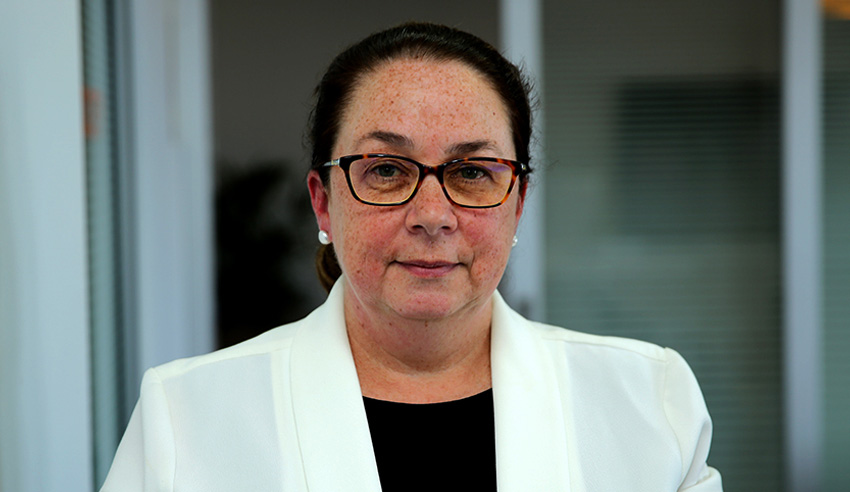Should you give your clients a ‘practice day’ for court?
Offering clients the chance of a trial run before they enter the courtroom can be a great way to assuage fears and better cater to individual needs, says Kate Eastman.

While it has always been important for lawyers to ensure that clients in vulnerable circumstances feel as comfortable and supported as possible when engaging in legal proceedings, the age of coronavirus has provided an opportunity for practitioners to think more creatively about how best to cater to client idiosyncrasies.
To continue reading the rest of this article, please log in.
Create free account to get unlimited news articles and more!
According to barrister Ms Eastman, who is the counsel assisting for the Royal Commission into Violence, Abuse, Neglect and Exploitation of People with Disability, some creative ideas that have emerged in this time can and should be retained post-pandemic, including the option of a “practice day” in court for clients who may benefit from such a trial run.
Speaking recently on The Lawyers Weekly Show, Ms Eastman reflected that, earlier this year, the disability royal commission held a hearing for people with cognitive disabilities and access to healthcare services for those persons in Homebush (in Western Sydney). It was suggested to her and others at the commission that the witnesses have some practice before giving their evidence before the public hearing.
“The more we thought about it, [the more we] thought it was an excellent idea. It probably would be good for even us as lawyers to have the opportunity for a practice. So, for that hearing which we initially had scheduled for 10 days, we allocated the first day as a practice day,” she said.
“We invited anyone who was going to give evidence – persons with the lived experience, be it people with cognitive disability or the parents of children who had passed away, those who had issues around their healthcare services – to come along the day before for a practice. We literally went through the sorts of questions that they were going to be asked, so they could practice answering them, and we asked one of the royal commissioners to sit in so that the witness got a feel for what it was going to be like in the room.”
Having such a trial run was a “good learning experience” not just for those witnesses, Ms Eastman mused, but also for the legal counsel involved.
So much of the courtroom process involves telling witnesses where they are going to sit, where the judge will be and that there will be a transcript of the proceedings, she explained, and often, lawyers will forget that the “sensory experience of being in a really unfamiliar environment” can be overwhelming for persons across the board, but particularly for those in vulnerable circumstances.
What has become apparent throughout the life of the disability royal commission – and was clearer on this particular practice day – is the importance of ensuring that clients not only feel comfortable but that they are put in the best possible position to give evidence, Ms Eastman continued.
“The second thing we did was to really think about the layout of the hearing room so that it didn’t look like a courtroom, but it was a layout that enabled a person, perhaps with sensory disability, to feel comfortable and that they could concentrate and wouldn’t be intimidated by that environment,” she said.
This necessarily involves communicating with clients in ways that serve to bolster that increased sense of physical comfort, Ms Eastman added.
“One of the challenges for us as lawyers was to slow down and to be very clear about the language that we used and not to ask complex, multifaceted questions, but to really be very, very careful with the language that we use so that we could make sure that we assisted our colleagues who were the Auslan interpreters,” she noted.
Not every lawyer will have clients with disabilities, of course. But by creating an environment whereby the needs of one’s clients are better accommodated, particularly by way of a practice day for court, lawyers can offer services that better meet client expectations. In this sense, Ms Eastman submitted, a practice day “is a good idea if you’ve got the time and capacity”.
“If what comes out of COVID-19 is a greater awareness about the need for flexibility and doing things differently, that would be a great outcome. But the concern I have is that we’re comfortable in what we’ve done for so many years, that it’s going to be very hard for us to adjust. I think there’s a challenge there,” she mused.
“We have to have that conversation now and start to think about what alternatives and options are available, and that needs to be a conversation across the profession, not just for the [bar] but also solicitors, in-house counsel, those in government and the community legal sectors.
“The strong voices in this should be the people with lived experience, who can say, ‘This is what we need. These are the adjustments which would enable us to have a more inclusive experience of law’. I’d love to see that as an outcome. That might be the only good thing to come out of COVID-19.”
In the same episode, Ms Eastman spoke about the need for Australian lawyers to avoid patronising, loaded language when conversing with persons with disabilities in the profession.
To listen to the full episode with Kate Eastman, click below:






